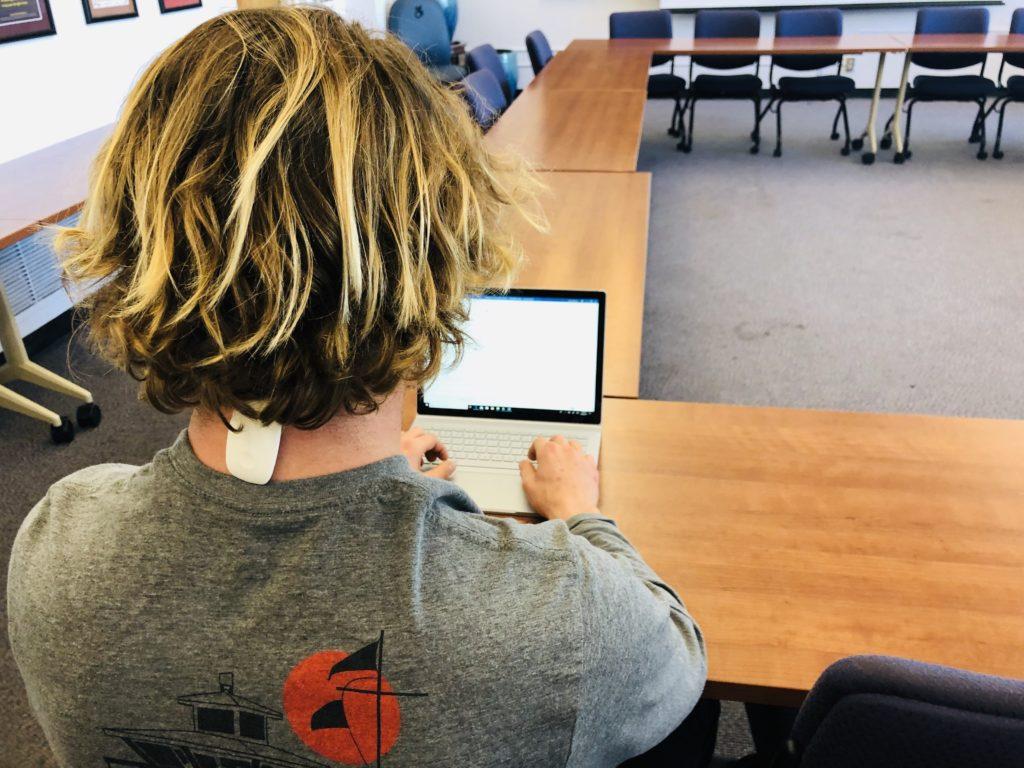The holistic health department will explore a connection between posture and psychological wellness this spring in a study with test subjects attending SF State.
Candidates for the study will be screened for test and homework anxiety and 30 subjects will be selected to wear posture-regulating devices for four weeks. The study will examine if improved posture leads to improved test scores, and researchers will present their findings at the 41st Annual Association of Professional Biology conference in 2020.
“When you have bad posture or a collapsed position, you are communicating to the audience and to yourself that, ‘I’m scared and I’m not confident,’” health education professor Erik Pepper said. “Before you fall into that mood, you will notice what you’re doing and correct it.”
Pepper, who has studied biofeedback and self-regulation for more than 40 years said students’ brains often shut down under pressure.
“The key is that most of us are unaware when we are collapsing,” he said. “The device [used in the study] will tell you when you are slouching.”
A similar study was conducted in 2018 with students without anxiety that garnered positive results, according to Pepper.
He’s now interested in students who experience higher rates of test-taking anxiety to see if he can replicate those findings and improve their emotional achievement.
Psychology major and holistic health minor Lauren Mason aided in last year’s study.
“It changes the way you think about yourself as well as the way others perceive you if you have a more upright posture,” Mason said. “That’s what we found last year from subjective reports. It altered the way people thought about themselves and their role limitations.”
According to Mason, there will be a non-treatment comparison group that does not receive the device to see if the posture-regulating device has a positive impact on test scores.
Economics major John Chetwynd works as Pepper’s teaching assistant and currently wears the device.
“I noticed that I have bad posture in class,” Chetwynd said. “The device made me realize that I’m slouching over, I need to sit up and pay a little more attention to what’s going on.”
Now even when he’s not wearing the device, Chetwynd said he is more aware of when he’s slouching.
Pepper said good posture can alleviate headaches, increase productivity and improve overall health.
“As a faculty member, I’m always concerned that if people are anxious it will inhibit their performance,” he said. “If you change your position, it changes your internal language.”
The study uses a 12-question, generalized measure called the Achievement Emotion Questionnaire, which asks questions about test-taking anxiety.
“In the last study, every participant’s health improved according to that measure,” Mason said.
Pepper is still seeking participants for the study and anyone interested can email [email protected] for more information.







